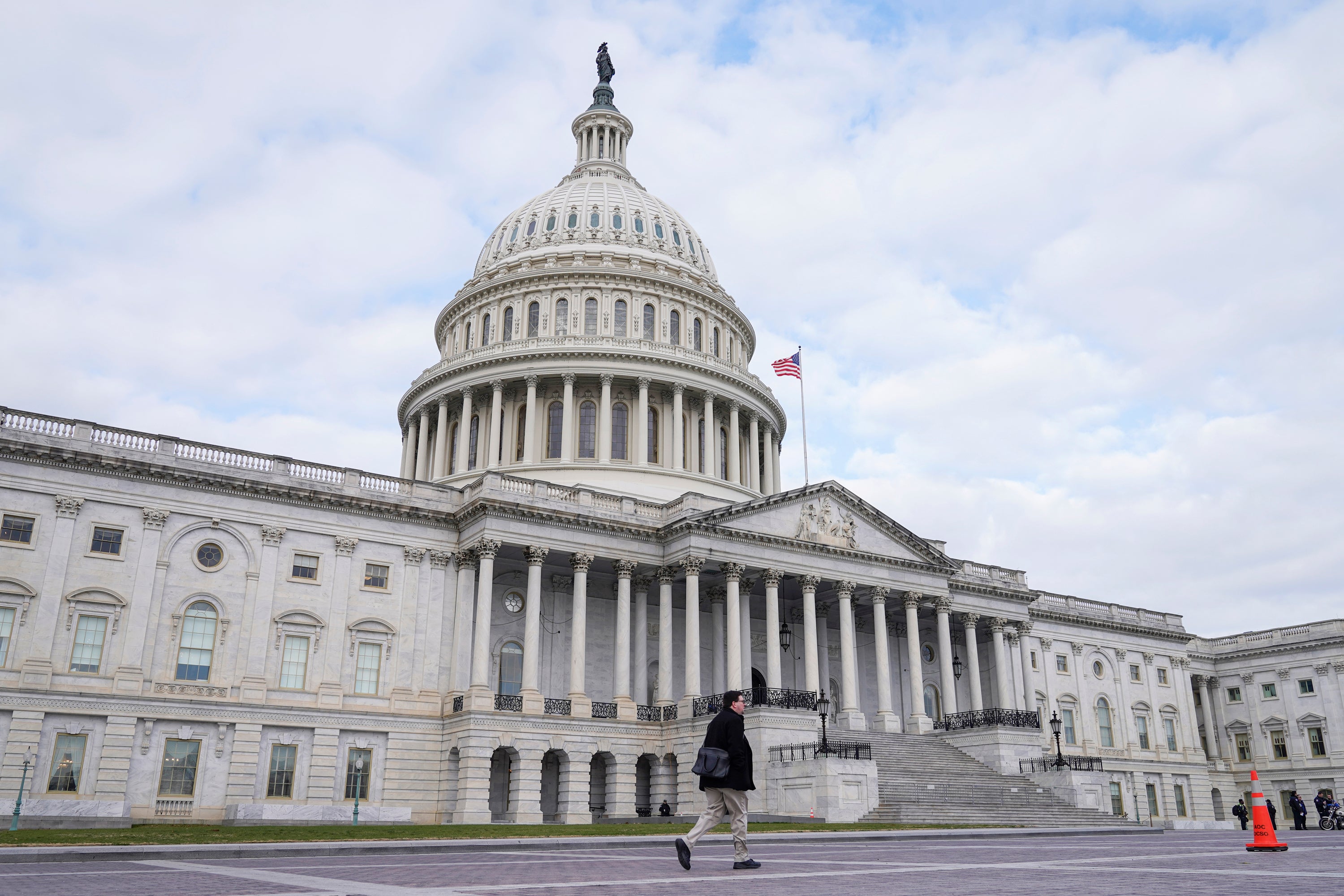Lawmakers announce bipartisan effort to enhance child tax credit, revive tax breaks for businesses
The chairmen of the top tax policy committees in Congress announced a bipartisan agreement Tuesday to enhance the child tax credit and revive a variety of tax breaks for businesses

Your support helps us to tell the story
From reproductive rights to climate change to Big Tech, The Independent is on the ground when the story is developing. Whether it's investigating the financials of Elon Musk's pro-Trump PAC or producing our latest documentary, 'The A Word', which shines a light on the American women fighting for reproductive rights, we know how important it is to parse out the facts from the messaging.
At such a critical moment in US history, we need reporters on the ground. Your donation allows us to keep sending journalists to speak to both sides of the story.
The Independent is trusted by Americans across the entire political spectrum. And unlike many other quality news outlets, we choose not to lock Americans out of our reporting and analysis with paywalls. We believe quality journalism should be available to everyone, paid for by those who can afford it.
Your support makes all the difference.The chairmen of the top tax policy committees in Congress announced a bipartisan agreement Tuesday to enhance the child tax credit and revive a variety of tax breaks for businesses, a combination designed to attract support from lawmakers of both political parties.
The roughly $78 billion in tax cuts would be paid for by more quickly ending a tax break Congress approved during the COVID-19 pandemic that encouraged businesses to keep employees on their payroll.
The agreement was announced by Sen. Ron Wyden, the Democratic chairman of the Senate Finance Committee, and Rep. Jason Smith, the Republican chairman of the House Ways and Means Committee. The lawmakers have been negotiating for months on a tax package that would address an array of priorities before lawmakers turn their focus to election season.
Wyden said his goal is to gain approval for the measure in time for businesses and families to benefit during the upcoming filing season. The Internal Revenue Service will begin accepting and processing tax returns on Jan. 29, so lawmakers are looking to move the bill as quickly as possible.
Meeting that goal may prove difficult as lawmakers are already racing to finish their spending bills and are considering a bill focused on both aiding Israel, and Ukraine and stemming the flow of migrants entering the country at the U.S.-Mexico border. One option would be for leaders in the House and Senate to attach the measure to one of those top-priority bills.
In forging the agreement, Democratic negotiators were focused on boosting the child tax credit. The tax credit is $2,000 per child, but only $1,600 is refundable, which makes it available to parents who owe little to nothing in federal income taxes. The bill would incrementally increase the maximum refundable child tax credit to $1,800 for 2023 tax returns, $1,900 for the following year and $2,000 for 2025 tax returns.
The Center on Budget and Policy Priorities, a liberal think tank and advocacy group, projected that about 16 million children in low-income families would benefit from the child tax credit expansion.
“Given today’s miserable political climate, it’s a big deal to have this opportunity to pass pro-family policy that helps so many kids get ahead,” Wyden said in a statement announcing the deal.
Republicans were focused on tax breaks for businesses that they said would help grow the economy. The extensions provided for in the bill would generally align them with other tax cuts that were approved in 2017 when then-President Donald Trump was in office.
Most notably, the bill would give companies of all sizes the ability to deduct research and development costs immediately rather than over the course of five years. It would also allow businesses to fully deduct the purchase of equipment, machinery and technology. And, the bill also provides more flexibility in determining how much borrowing can be deducted.
Smith said the agreement “strengthens Main Street businesses, boosts our competitiveness with China, and creates jobs.”
Some lawmakers have insisted that any tax extensions be paid for so as not to add to projected deficits. The authors of the agreement attempt to do that by speeding up the demise of the employee retention tax credit. Under current law, businesses had until April 15 of next year to claim the credit. The bill would bar additional claims after Jan. 31 of this year. It also would increase penalties for tax preparers failing to undertake due diligence in submitting those COVID-related claims.
The tax credit was designed to make it easier for businesses to keep their employees on the payroll at a time when COVID was keeping people at home and away from stores, hotels and restaurants. The IRS in September announced a moratorium in processing new claims through at least the end of the year, following concerns that a substantial share of new claims from the aging program were ineligible.